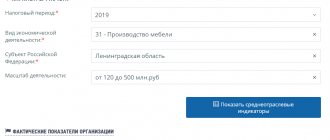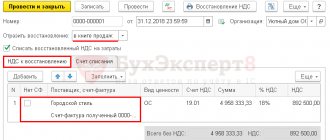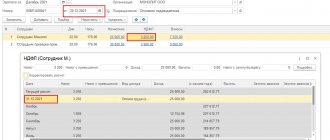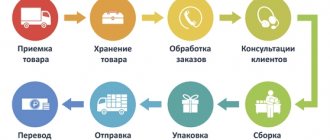What is a tax audit
The most important task of the tax authorities of the Russian Federation is to monitor the fulfillment by taxpayers of such duties as:
- accrual of all necessary taxes in respect of which the taxpayer has such an obligation;
- correctness of tax calculations;
- justification for applying benefits;
- timely payment of taxes.
One of the tools for such control is a tax audit (subclause 2, clause 1, article 31 of the Tax Code of the Russian Federation), which is divided into 2 types (clause 1, article 87 of the Tax Code of the Russian Federation):
- Desk, in which the Federal Tax Service Inspectorate comprehensively checks the submitted reports.
- An on-site visit, which, as a rule, is carried out on the territory of the taxpayer and involves not only studying the originals of the primary report that served as the basis for calculating taxes, but also checking the availability of property.
Find out the details and nuances of tax audits from our section “Tax audits and their types in 2020–2021” .
Who can check the IP?
The subject of inspections and the frequency of their conduct depend on the government body exercising control over business activities. Most often, individual entrepreneurs encounter similar procedures from the authorities listed below:
- Federal Tax Service;
- labor inspection;
- Rospotrebnadzor;
- fire supervision;
- Rostechnadzor;
- prosecutor's office;
- other government bodies.
The procedure for carrying out these inspections, their duration and frequency, the powers and responsibilities of the regulatory authorities are enshrined in Federal Law No. 294 of December 26, 2008.
The procedure for regulating the activities of individual entrepreneurs by the tax inspectorate does not fall under the scope of this federal law, because it is regulated by the provisions of the Tax Code of the Russian Federation.
Inspection rules
All tax reports submitted to the Federal Tax Service are subject to desk audit. In doing so, pay attention to the following:
- the logical nature of the obligation to submit such reports;
- correct application of rates;
- validity of benefits;
- correctness of arithmetic calculations;
- correlation with information from other taxpayer reports submitted to the Federal Tax Service;
- linkage with other data available to the Federal Tax Service;.
- the presence of sharp fluctuations in the size of the tax base;
- validity and consistency of changes when submitting an updated declaration.
If questions arise, the inspection will request clarifications (clause 3 of Article 88 of the Tax Code of the Russian Federation) and the necessary primary documents (clauses 6, 8, 8.1, 8.3 of Article 88 of the Tax Code of the Russian Federation). It is in the interests of the taxpayer to respond to such a request in a timely manner, attaching to the explanations copies of documents confirming his correctness and transcripts of accounting data.
When to submit an updated declaration during a desk audit of the primary declaration
If the inspector’s doubts about the correctness of the submitted reports are justified, then instead of explanations it is necessary to submit an updated declaration, which will again be subjected to the same desk check by the Federal Tax Service Inspectorate. At the same time, it is also possible to request clarification for updated reporting.
ConsultantPlus experts spoke in detail about the consequences of filing an updated declaration during a tax audit. Get free trial access to K+ and proceed to the explanations.
The period for this check is 3 months from the date of submission of the declaration (clause 2 of Article 88 of the Tax Code of the Russian Federation). If during its implementation the reporting is clarified, then the first inspection is stopped and a new one of the same duration begins. Only its period is counted from the date of submission of the updated report.
If, as a result of the taxpayer’s explanations, the issue of the Federal Tax Service is not resolved, then it will consider that a tax offense has been committed and after 15 working days (10 days are given to controllers to draw up the report + 5 days to transfer it to an verified person) will hand over the taxpayer a report of a certain form (clauses 1– 4 Article 100 of the Tax Code of the Russian Federation). It will not be possible to evade its delivery: if delivery is impossible, the act will be sent by mail, and it will be considered received on the 6th working day after the date of sending (clause 5 of Article 100 of the Tax Code of the Russian Federation). From the date of delivery of the act, the taxpayer has a month to submit an objection to it (clause 6 of Article 100 of the Tax Code of the Russian Federation).
Fire inspection
Inspectors from the Ministry of Emergency Situations check every entrepreneur sooner or later. As a rule, the frequency of a controller’s visit is limited to once every three years, and the schedule of visits to a particular individual entrepreneur is published on the official website of the Prosecutor General’s Office of the Russian Federation. The reason for visiting a businessman may be the receipt of a complaint addressed to him.
Inspectors are authorized to check:
- IP documentation (for example, the presence of an evacuation plan, an order for employees to undergo training on fire safety rules, etc.);
- state of the fire warning system;
- availability and accessibility of emergency exits;
- compliance of the evacuation plan with the actual location of the premises;
- technical condition of the office or retail space (for example, the degree of fire resistance of the material from which the walls and ceiling are made);
- etc.
Entrepreneurs must take the inspection of the Ministry of Emergency Situations seriously. If fire safety rules are not followed, the individual entrepreneur not only risks receiving a fine, but also faces serious damage to the business caused by the fire.
Features of on-site inspection
An on-site inspection differs from a desk inspection in the following ways:
- It usually takes place on the territory of the taxpayer. Although, if he cannot provide inspectors with a separate room, then it is possible to conduct an inspection directly at the Federal Tax Service (Clause 1 of Article 89 of the Tax Code of the Russian Federation).
- The correctness of tax calculations is checked using the originals of primary documents (clause 12 of Article 89 of the Tax Code of the Russian Federation), if questions arise, asking for clarification from the taxpayer. At the same time, the tax authorities have the right to inspect and even make an inventory of the property used by the taxpayer (clause 13 of Article 89 of the Tax Code of the Russian Federation). Tax authorities also have the right to conduct an examination, attract third-party specialists, translators, witnesses and witnesses.
Read about the rules for conducting an inspection of premises in the article “Inspection: rules for conducting and recording the results .
- The inspection is carried out on the basis of a decision of the Federal Tax Service, made in compliance with a certain procedure (clause 2 of Article 89 of the Tax Code of the Russian Federation).
- It can be continuous or selective, dedicated to several taxes or one, but cannot be carried out more than once a year, cannot be carried out twice on the same taxes for the same period and cannot cover more than the last 3 full reporting years (paragraphs 3–5 Article 89 of the Tax Code of the Russian Federation). At the same time, branches are taken into account separately in terms of inspections. The rules on conducting no more than once a year, preventing inspections of already audited taxes and period restrictions do not apply to repeated inspections and inspections related to liquidation or reorganization (clauses 10, 11 of Article 89 of the Tax Code of the Russian Federation);
Read about repeated inspections in the material “A repeated on-site inspection can be “deeper” than 3 years .
- Its period is 2 months (for branches - 1 month) and is counted from the day the decision is made to the day the inspection certificate is drawn up, but can be increased to 6 months (clauses 6–8 of Article 89 of the Tax Code of the Russian Federation). In this case, the inspection may be suspended for a period of no more than 6 months (in some cases - up to 9 months) for certain reasons (clause 9 of Article 89 of the Tax Code of the Russian Federation).
Based on the results of the on-site inspection, in a manner similar to that established for a desk inspection, a report is drawn up and objections are filed against it. Only the deadline for delivering the act has been increased: 2 months for issuing the act (counting from the date of issuing the certificate of on-site tax audit) plus 5 working days for delivering the act to the taxpayer (clauses 1, 5 of Article 100 of the Tax Code of the Russian Federation).
Everything about on-site tax audits is in the Guide from ConsultantPlus. If you don't have access to K+, get it for free on a trial basis.
What can a fine be imposed for?
All violations committed by entrepreneurs can be divided into several groups.
The individual entrepreneur did not submit reports on time
Late submission of reports may result in liability under Article 119 of the Tax Code . For this, a fine of 5% for each full and partial month of non-payment of the amount of unpaid tax. The amount of the fine has a minimum and maximum limit. Thus, the fine cannot be more than 30% of the amount of taxes. The minimum fine is 1,000 rubles . He assigns, for example, if an entrepreneur paid tax but did not file a tax return on time.
There is another measure of influence on taxpayers who do not submit reports on time. If the documents are not received by the Federal Tax Service within 10 days after the deadline for their submission, the inspectorate may block the individual entrepreneur's current account . In order for it to work again, you will first need to submit a report.
The individual entrepreneur did not pay taxes
You can also receive a fine for non-payment of taxes - this is stipulated in Article 122 of the Tax Code of the Russian Federation. Its size is 20-40% of the unpaid tax amount. And for late payments, the Federal Tax Service will charge penalties based on 1/300 of the refinancing rate for each day of delay.
Individual entrepreneur commits irregularities in accounting and calculation of income and expenses
Violation of the procedure for accounting for income and expenses leads to the fact that taxes may be underestimated. If an individual entrepreneur committed gross violations in such accounting, namely, incorrectly reflected business transactions (at least twice during the year), did not draw up or did not save primary documents, then he will be fined under Article 120 of the Tax Code of the Russian Federation. The fine will be:
- 10,000 rubles if violations occurred during one tax period.
- 30,000 rubles if gross violations were committed during two or more tax periods.
- 20% of the amount of unpaid tax, if as a result of such violations its amount was underestimated. The minimum fine in this case is 40,000 rubles.
The individual entrepreneur committed other violations
Here are a few more common violations:
- Failure to fulfill the duty of a tax agent. In some cases, an individual entrepreneur must calculate and pay tax not for himself, but for others. For example, personal income tax for hired employees or VAT when renting premises from a municipal authority. For failure to fulfill such obligations, in accordance with Article 123 of the Tax Code of the Russian Federation, a fine is imposed. It will amount to 20% of the amount that should have been withheld by the tax agent and transferred to the budget. If he submits documents that contain false information, he will pay a fine under Article 126.1 of the Tax Code of the Russian Federation in the amount of 500 rubles for each document.
- Failure to comply with the requirement to provide documents or information about the taxpayer. This refers to information about the individual entrepreneur's counterparties, which the Federal Tax Service may need to carry out tax control activities. If the individual entrepreneur does not provide the data he has or they are unreliable, then the fine in accordance with Part 2 of Article 126 of the Tax Code of the Russian Federation will be 10,000 rubles.
- Violation of the procedure for working with cash register systems. For any cash payments, including payment by bank card, the individual entrepreneur must use cash register equipment. Violation of this rule is subject to a fine under Article 14.5 of the Code of Administrative Offences. Its amount is 25-50% of unaccounted revenue, but not less than 10,000 rubles.
What should an individual entrepreneur know regarding verification?
With regard to tax audits, an individual entrepreneur, like any other taxpayer, is subject to all the rules described above.
The inspectorate conducts a desk tax audit of the individual entrepreneur in relation to all reports he submits, and it is unlikely that he will do without questions from the Federal Tax Service. To reduce the likelihood of receiving requests for clarification and the possibility of negative consequences of such a review, individual entrepreneurs should follow the following rules:
- submit reports no later than the established deadlines, using only current report forms;
- Before submitting the reports, independently check them as completely as possible and link them with the data of other reports submitted to the Federal Tax Service;
- Whenever possible, make reporting as transparent and understandable as possible;
- promptly respond to requests for clarification, accompanying your responses with copies of the necessary documents;
- respond promptly and as fully as possible to requests for counter-inspections;
- not to create obstacles to the Federal Tax Service if, during a desk inspection, it deems it necessary to inspect the property of an individual entrepreneur.
These measures will not only allow you to pass a desk audit without loss, but will also reduce the risks of conducting an on-site tax audit. Typically, the first candidates for an on-site audit are those taxpayers who:
- often submit reports with errors;
- do not respond at all or do not respond fully to requests;
- interfere with inspection activities;
- do not pay taxes on time.
For error-free preparation of tax reporting use the materials section .
You might also be interested in:
Online cash registers Atol Sigma - how to earn more
How to make a return to a buyer at an online checkout: step-by-step instructions
MTS cash desk: review of online cash register models
Scanners for product labeling
Shoe marking for retail 2022
Online cash register for dummies
Did you like the article? Share it on social networks.
Add a comment Cancel reply
Also read:
How the tax office will check online cash registers. Fines in 2021
Tax checks on cash registers resumed in 2022 - the moratorium imposed due to the sudden outbreak of the Covid-19 virus pandemic has ended and from now on control activities will take place as usual.
The main goal of these checks, as before, is to motivate entrepreneurs and organizations to use online cash registers when making payments to consumers, as well as to increase the amount of incoming tax payments. If violations are detected during inspections, the Tax Service will... 1010 Find out more
Online cash registers for small businesses
By mid-2022, online checkouts for small businesses will be a must-have for everyone.
These are the requirements of Federal Law 54-FZ, updated in November 2022. From now on, entrepreneurs who decide to install an online cash register for small businesses (or improve the existing one accordingly) are required to comply with the following conditions: use only a fiscal drive, and not an ECLZ; add new details to the checks; enter into an agreement with the fiscal data operator... 463 Find out more
Economic census of small businesses - new report to Rosstat in 2021
The economic census of small businesses, according to government decree, should be conducted again in 2022.
Rosstat will conduct continuous static monitoring of all enterprises that fall under the category of small and medium-sized businesses. This means that all individual entrepreneurs, small and micro organizations are required to submit reports to the Federal State Statistics Service containing certain information about their enterprises collected for 2022. Open a current account for… 815 Find out more
Digital platform for small and medium-sized businesses in 2021
The Russian Ministry of Economic Development will launch a digital platform for small and medium-sized businesses by the end of 2022. The project is currently being tested, but the final version will be launched by the end of December this year. Thanks to the development of a digital platform for business, entrepreneurs and enterprises will be able to gain access to ordering the necessary services using this platform: searching for purchases, obtaining preferential lending conditions, receiving subsidies, as well as...728 Find out more
Recommendations for individual entrepreneurs on inspections
Regarding on-site tax audits of individual entrepreneurs, you need to keep the following in mind:
- Individual entrepreneurs, more often than other taxpayers, do not have the opportunity to receive representatives of the Federal Tax Service on their territory. Therefore, an on-site tax audit of individual entrepreneurs is usually carried out on the territory of the Federal Tax Service.
- When conducting an inspection to the Federal Tax Service, you will have to send the originals of the primary report there (clause 12 of Article 89 of the Tax Code of the Russian Federation). An inventory must be made of such documents.
Read about the specifics of providing documents during an on-site inspection in the material “Requesting documents during an on-site inspection: what you need to know about the deadlines .
- You should not attempt to destroy, hide or replace primary documents. If such a fact is revealed, the Federal Tax Service will have the right to forcibly confiscate these documents (clause 12 of article 89 and clause 8 of article 94 of the Tax Code of the Russian Federation).
- There is no need to restrict inspectors’ access to property used in business activities. Without seeing reality, they can charge taxes on it based on their own data (clause 3 of Article 91 of the Tax Code of the Russian Federation).
- It is necessary to promptly respond to the tax audit report if there are justified objections to its results. The inspector might not have seen or understood something, or simply made a mistake. Timely filing of objections allows you to remove, if not all, then at least part of the additional charges.
- An individual entrepreneur can be inspected after he ceases his business activities within 3 years from the date of its termination. Therefore, you need to keep all documents and be prepared for such verification.
Find out how to file objections to an inspection report by following the link.
What documents should an entrepreneur have?
Tax and individual entrepreneurs - how to register with the Federal Tax Service and what is needed for this
A full check of an individual entrepreneur involves the consideration of a number of documents that are directly related to the activity. What documents should an individual entrepreneur have in case of an audit? The following papers are of greatest importance:
- certificate of registration of a person as an individual entrepreneur. It will help you find out at what point the individual entrepreneur began to conduct its activities and function;
- documents confirming registration with the Pension Fund and the Health Insurance Fund;
- tax returns for periods of activity;
Entrepreneur's documents
- financial statements;
- bank statement confirming the existence of a current account;
- cash reporting (for retail trade and similar activities).
These are the basic documents that every entrepreneur needs to successfully pass the audit. In some cases, documentation may be required to demonstrate eligibility for a benefit.
Important! If the activities of an individual entrepreneur require a license, then this license must also be provided to tax office employees.
Results
An individual entrepreneur must be prepared for tax audits - desk and field.
He must also promptly submit the documents and information requested by tax authorities, and not interfere with the inspection of premises and territories, as well as other tax control measures within the framework of tax legislation. Procedures for inspections and submission of documents separately for individual entrepreneurs are not provided for in the Tax Code of the Russian Federation - they are carried out according to rules common to all taxpayers. You can find more complete information on the topic in ConsultantPlus. Free trial access to the system for 2 days.
Verification from other authorities
If an entrepreneur is engaged in certain types of activities, other supervisory authorities may also visit him. For example, police officers have the right to visit the office or commercial premises of an individual entrepreneur in a situation where they have received information about the commission of a crime.
As a result of a police check, a criminal or administrative case may be initiated. Among other supervisory authorities authorized to check the activities of businessmen are:
- Rosselkhoznadzor;
- Central Bank of the Russian Federation;
- housing inspection;
- Roszdravnadzor;
- Ministry of Education;
- customs control;
- etc.
How often inspections from the listed authorities can take place depends on many factors (the frequency of receiving complaints, the presence or absence of identified violations by the individual entrepreneur, the type of business activity, etc.).






